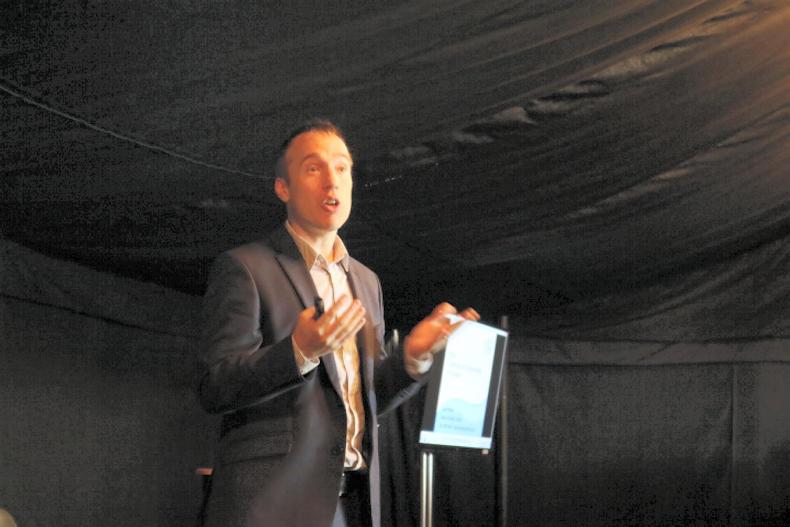Farms need to prepare now for Brexit and not wait to see what deal is struck between the UK and EU, according to the head of strategic insight in AHDB.
The upside from being outside of the EU is that the United Kingdom could have full regulatory autonomy, David Swales said at the Pototoes in Practice event at the James Hutton Institute last week.
However, the problem with having full regulatory autonomy is that the UK could end up having WTO trade tariffs, making trading with the EU very costly. According to Swales, the UK government is aiming for a US/Canada style trade deal with the EU rather than aiming for the models that Switzerland and Norway currently have.
“The UK government is aiming for a US/Canada type Free Trade Agreement with no tariff barriers, making it as frictionless as possible,” he said. “Potatoes are less dependent on the EU market for exports than other sectors.”
However, two of the key countries for potato seed exports have preferential trade agreements in place with the European Union. AHDB said it has made DEFRA aware of this, but while agriculture may be larger than the “automotive manufacturing industry it is lower down in the pecking order”.
“The government says it wants to avoid having a cliff edge which means it needs to strike deals with these countries before negotiations conclude,” Swales said. “In my view, that is quite ambitious and we will have to prepare for having a period of time where we won’t have access to these markets. The EU is quite protectionist in its approach, the UK is more liberal and will be able to access new markets.”
He outlined areas such as the Asia-Pacific as places that the UK should target for trade post-Brexit. Out of all the potato imports into the UK, 72% of them come from Europe. Almost 60% of the UK’s potato exports go to Europe.
The bulk of the frozen processed potatoes consumed in the UK are imported from Belgium. So is there an opportunity to meet that demand domestically going forward? According to Swales the UK is not producing enough potatoes at the moment to meet domestic demand.
He forsees a rise in potato prices post Brexit, thus a likely increase in production. However, to meet the demand of the frozen processed sector domestically an investment in processing capacity would also be needed.
In terms of the use of plant protection products post-Brexit, Swales issued caution to those that may think EU regulations will disappear overnight.
“People expect a bonfire of regulations, I don’t think that will happen. It would prevent numerous trading risks which you don’t want to do when you are trying to strike trading arrangements with new partners. We could carry on using EU rules indefinitely.”
And then the other problem for farmers planning their business going forward is knowing what sort of support will be available.
Other countries, eg Switzerland and Norway, receive far more support than the EU provides. However, Swales believes that the UK government is looking towards countries such as New Zealand and the US for inspiration on farm support going forward.
“I would plan on support going down, that would be prudent,” he said. “Farmers should look towards risk management approaches. We may end up with a support mechanism that fluctuates with farm gate prices.”
Is your business Brexit ready – five key questions
1. Are we taking time, on a routine basis, to take a hands-off view of the business and its management?
2. Do we know our business costs and how do they compare? What is our action plan to tackle areas of under performance/high costs?
3. Is the business developing a sufficient profit, on a five year rolling average, before direct payment?
4. What if the direct payment was reduced by 25%, by 50% or more? Do you have a plan that takes account of different scenarios?
5. From labour availability to succession planning, what will our business do to ensure it has the right practical, business and leadership skills for now and our future?






 This is a subscriber-only article
This is a subscriber-only article









SHARING OPTIONS: